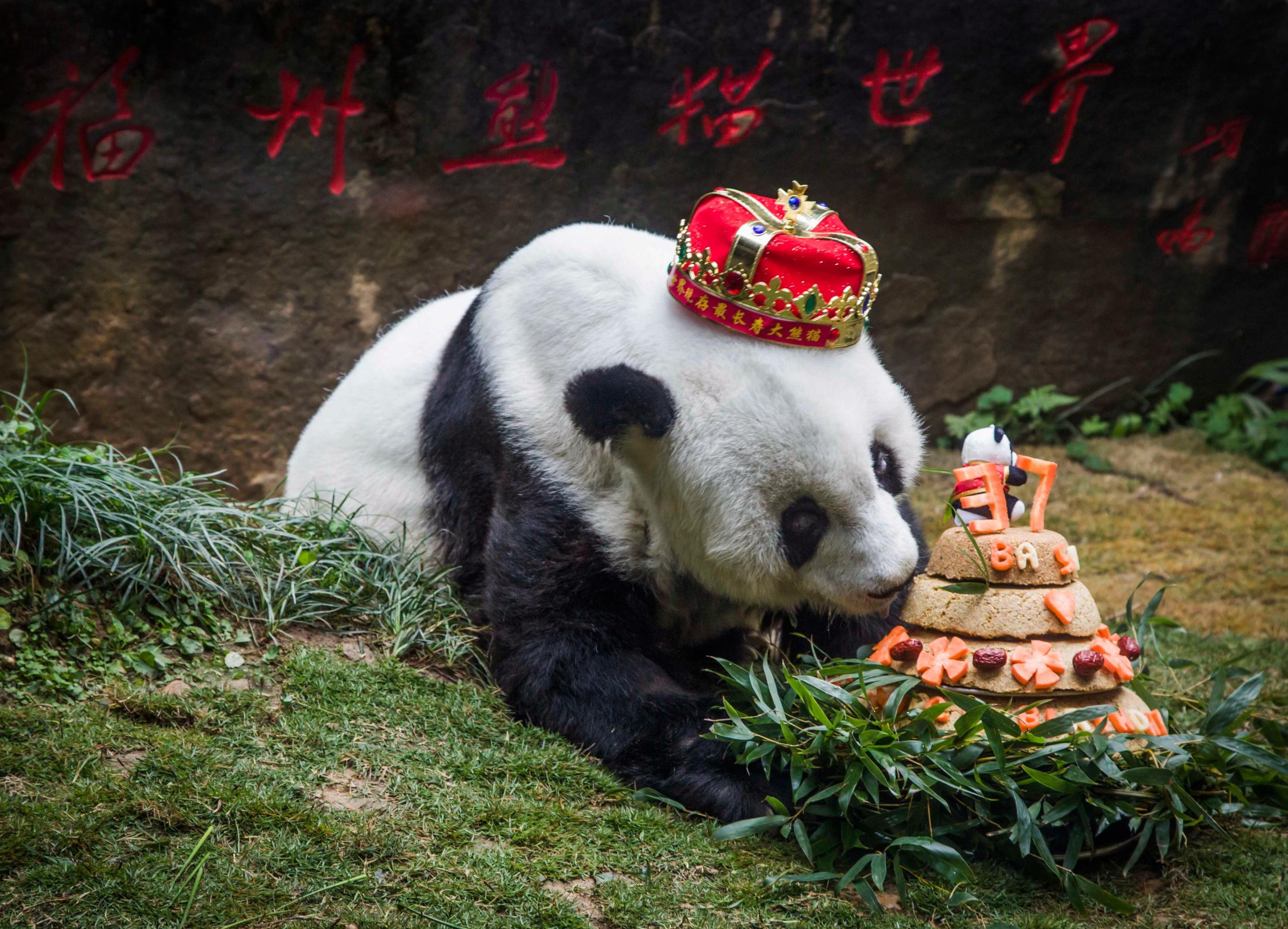World's oldest captive panda dies in China aged 37
Basi lived beyond the equivalent of 100 human years

The world's oldest captive panda has died in China aged 37.
Basi, a household name in her native country, lived the equivalent of more than 100 human years.
She died at the Strait Panda Research and Exchange Centre in Fuzhou, capital of Fujian province in eastern China.
Basi was born in the wild and at the age of four survived a brush with death after falling into an icy river.
She took her name from the Basi valley, where she was rescued by villagers in south-west China's Sichuan province, according to the Xinhua news agency.
Locals handed her over to the centre, where she lived the rest of her life.
The bear found fame after she was chosen as the model for Pan Pan, the mascot of the 1990 Asian Games in Beijing.
She never bred but overcame several severe illnesses to live for more than twice the 15-year life expectancy of wild pandas.
Captive pandas tend to live longer due to better nutrition and living conditions.
Basi was confirmed to be the world's oldest captive panda by Guinness World Records in August.
"With a heavy heart, we solemnly announce today that giant panda star Basi died at 8:50am at the age of 37," said the Straits Giant Panda Research and Exchange Centre in a statement.
The bear died of multiple illnesses including lever cirrhosis and renal failure, it said.
Basi's body will be kept in a new museum constructed in her name.
In pictures: The Edinburgh Zoo pandas
Show all 8She died a year after the death of her long-term keeper, Shi Feining, who had cared her Basi for 27 years.
Last year the giant panda was downgraded from "endangered" to "vulnerable" on the global list of species at risk of extinction.
The International Union for Conservation of Nature attributed the change of status to the rising population of pandas in China.
Subscribe to Independent Premium to bookmark this article
Want to bookmark your favourite articles and stories to read or reference later? Start your Independent Premium subscription today.

Join our commenting forum
Join thought-provoking conversations, follow other Independent readers and see their replies